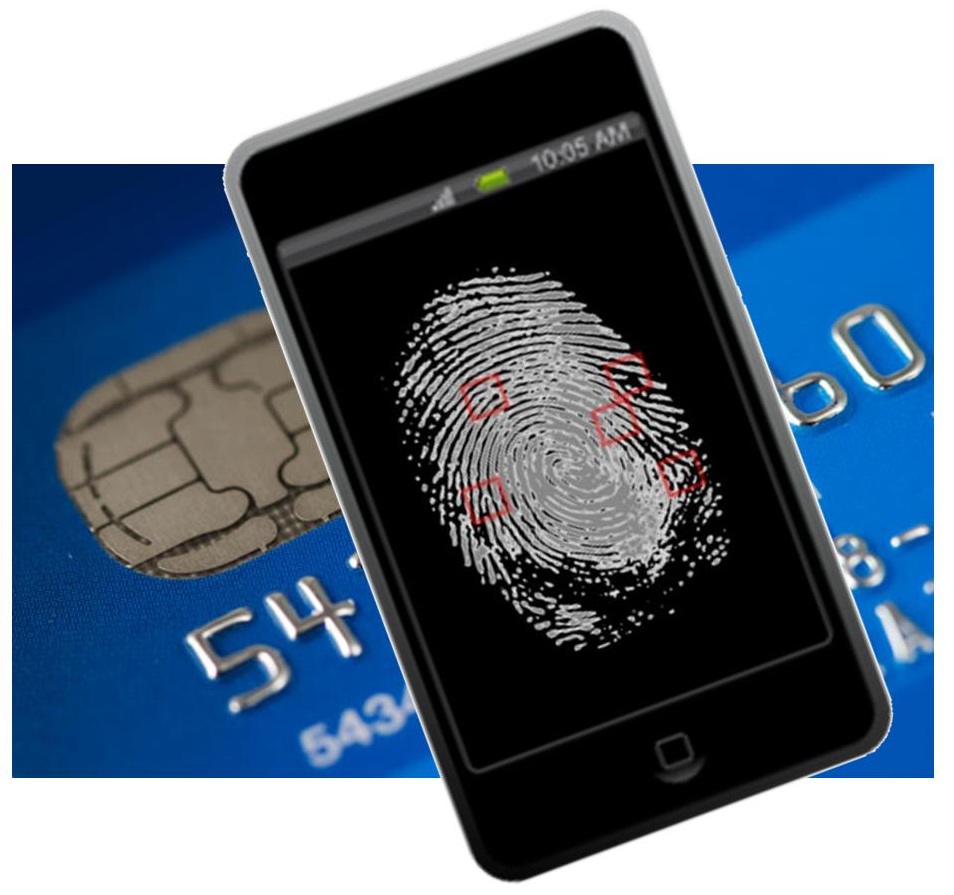Apple gathers more momentum in the wake of recent event
Apple’s senior vice president of software engineering Craig Federighi recently spoke at the WWDC keynote event, where he brought a great deal of attention to Touch ID, the company’s fingerprint scanner that was introduced last year. Touch ID is part of the iPhone 5S and is meant to add an extra layer of biometric security to the mobile device. This biometric system has created a significant deal of hype around Apple’s potential foray into the mobile payments field, and this hype has only increased in the wake of the WWDC event.
Touch ID could help make mobile shopping more secure
During the event, Federighi noted that developers would soon be able to take advantage of the Touch ID API, allowing them to integrate the features of Touch ID into their applications. This could soon lead to the emergence of a new generation of mobile payments services that are much more secure than their predecessors. Security has been a major challenge for the mobile payments field, with many services falling prey to malicious groups that seek to access the financial information of consumers and businesses. Biometric technology could help alleviate the security problem by make services more resilient against the threats they are exposed to in the mobile space.
Apple continues to move away from NFC
 Apple has been somewhat outspoken with its security concerns when it comes to the matter of mobile payments. The company had initially shown interest in the use of NFC technology, but NFC has since become unattractive from Apple’s perspective. Instead, the company is focusing more heavily on Bluetooth and cloud technology, with biometrics service as a security barrier that is meant to offer consumers better protection.
Apple has been somewhat outspoken with its security concerns when it comes to the matter of mobile payments. The company had initially shown interest in the use of NFC technology, but NFC has since become unattractive from Apple’s perspective. Instead, the company is focusing more heavily on Bluetooth and cloud technology, with biometrics service as a security barrier that is meant to offer consumers better protection.
Company has yet to make a definitive entry into the mobile payments field
While Apple has been growing more aggressive in the mobile payments field, the company has yet to make a decisive entry into the marketplace. Though iOS devices can be used for mobile shopping and payments, Apple has not yet introduced a service that is specifically designed for payments and is not likely to do so for some time.
Security is attracting more attention from merchants engaging mobile consumers
Merchants are beginning to become more aware of the dangers that exist in the mobile and digital spaces, according to the results of the 2nd Annual Mobile Payments and Fraud Survey conducted by Kount, The Fraud Practice, and CardNotPresent.com. These dangers have existed for some time, but merchants have been blind to them as they rushed to enter into the mobile commerce space. While mobile commerce has become quite popular, it has also become quite a risky thing to participate in because of the lack of security that exists on many popular platforms.
Survey shows that many merchants are participating in mobile commerce, but few have adequate security in place
According to the survey, 66% of merchants around the world now support mobile commerce. Mobile commerce support among merchants is expected to rise by 30% annually over the next few years. Merchants are becoming more comfortable with the mobile space as they begin to expose themselves to consumers that primarily shop and purchase products from smartphones and tablets. These merchants are working to become more accommodating to these consumers in the hopes of remaining relevant with changing consumer behaviors.
Mobile commerce continues to be a risky field
 The survey shows that nearly a third of merchants consider the mobile space to be more risky than e-commerce. Mobile commerce has become a popular target for hackers because of the trafficking of financial information. This information can be somewhat easily accessed by hackers because of the lackluster security that exists with most mobile commerce platforms. While this has become a major concern for merchants, it has also caused many consumers to avoid mobile shopping.
The survey shows that nearly a third of merchants consider the mobile space to be more risky than e-commerce. Mobile commerce has become a popular target for hackers because of the trafficking of financial information. This information can be somewhat easily accessed by hackers because of the lackluster security that exists with most mobile commerce platforms. While this has become a major concern for merchants, it has also caused many consumers to avoid mobile shopping.
As security improves, consumers are likely to become more active in mobile commerce
As merchants become more conscious of the risks that exist in the mobile space, they are beginning to take security more seriously. This means introducing new features to popular mobile commerce platforms that merchants have designed themselves. More security is expected to increase consumer spending in the mobile field because they will feel more confident in the safety of their financial information.
 Apple has been somewhat outspoken with its security concerns when it comes to the matter of mobile payments. The company had initially shown interest in the use of NFC technology, but NFC has since become unattractive from Apple’s perspective. Instead, the company is focusing more heavily on Bluetooth and cloud technology, with biometrics service as a security barrier that is meant to offer consumers better protection.
Apple has been somewhat outspoken with its security concerns when it comes to the matter of mobile payments. The company had initially shown interest in the use of NFC technology, but NFC has since become unattractive from Apple’s perspective. Instead, the company is focusing more heavily on Bluetooth and cloud technology, with biometrics service as a security barrier that is meant to offer consumers better protection.
 The survey shows that nearly a third of merchants consider the mobile space to be more risky than e-commerce. Mobile commerce has become a popular target for hackers because of the trafficking of financial information. This information can be somewhat easily accessed by hackers because of the lackluster security that exists with most mobile commerce platforms. While this has become a major concern for merchants, it has also caused many consumers to avoid mobile shopping.
The survey shows that nearly a third of merchants consider the mobile space to be more risky than e-commerce. Mobile commerce has become a popular target for hackers because of the trafficking of financial information. This information can be somewhat easily accessed by hackers because of the lackluster security that exists with most mobile commerce platforms. While this has become a major concern for merchants, it has also caused many consumers to avoid mobile shopping.